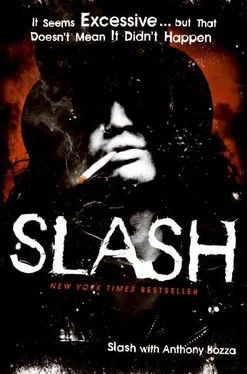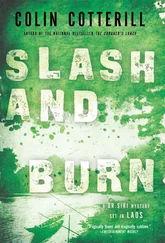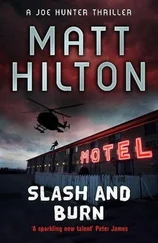I WAS DESPERATE TO BE IN A BAND; SO I combed the ads in The Recycler —L.A.’s free musicians’ paper—every week, looking for an invitation to something that appealed to me. For the most part it was futile: the ads were nothing but shredders seeking shredders. But one week, I saw an ad that intrigued me: it was a singer and guitarist looking for a fellow guitarist in the vein of Aerosmith and Hanoi Rocks. And more important, it expressly stated that “no beards or mustaches” need apply.
I called the number in the ad and made arrangements to meet them at this guesthouse that they were renting on some street up in Laurel Canyon. I showed up there with a girl that I was dating and recognized Izzy immediately from the day he came into the music store with my Aerosmith drawing. I then realized that the other guy must be that high-pitched singer I’d heard on the tape. I thought, Cool, this might actually go somewhere . Their little shack was more like a closet: there was room enough for a bed, with space to sit on the floor in front of it, and room enough for a TV—which was the only source of light in there.
I talked to Izzy for a while, but Axl never got off the phone, though he nodded his head in acknowledgment when I came into the room. At the time I thought it was rude, but now that I know him I understand that wasn’t the case. When Axl gets into a conversation, there’s no stopping him. In Guns, we used to call it a Twain Wreck: when Axl started telling a story, he was as long-winded as Mark Twain. That first meeting, though, was pretty uneventful: either they’d decided that they were no longer interested in a second guitar player or I just didn’t look the part. Whatever the problem was, it went nowhere at all.
THE MINUTE STEVEN GOT BACK TO HOLLYWOOD, he proudly informed me that he’d learned to play drums at his mom’s house out there in the Valley, which I am sure contributed to his being kicked out again. Steven was ready to start our band, even though at the time I was still halfheartedly playing with Tidus Sloan and answering the odd ad in the paper looking for a guitar player. I didn’t take him seriously; to me Steve was my social director—and a bit of a nuisance: he started coming to Tidus Sloan rehearsals, and every chance he got, he insisted that he was a better drummer than Adam Greenberg. When I eventually found myself without a band, Steve had annoyed me so much that I wasn’t even willing to watch him play, let alone play with him.
Steve’s grandmother had given him her old blue Gremlin; a car that looks exactly like it sounds—stout and boxy. Apparently, every day, since he couldn’t practice in his grandmother’s house, he’d been loading his drum kit into this thing and driving out to the public park on Pico across the street from Twentieth Century-Fox studios that includes a swimming pool and a golf course. I knew it well; I used to play soccer there when I was nine. As weird as it was, Steven would set up his drums next to a section of the walking path and just practice all afternoon and evening. I’m sure the seniors, joggers, ducks, and dog walkers were happy about it; a blond rock kid with teased-out hair playing a full-size double-bass-drum metal kit as hard as he can is bound to be a crowd pleaser in any setting.
I eventually agreed to check him out, though I continued to wonder what the hell I was thinking as I drove out to meet him. It was completely dark when I got there. I parked next to his car and wandered out to the jogging path and there he was, drumming away in the dark. He was back-lit by the distant floodlights, while the huge expanse of the park and the golf course loomed behind him. It was a very weird scene. I took that in for a while before I even paid attention to his playing. But once I did, I forgot about the backdrop. Sitting there in the dark, watching Steven play, I wasn’t convinced of his abilities, but I was satisfied. Besides, I didn’t have a better option open to me anyway.
STEVEN AND I WERE IN A SITUATION that was familiar and unwelcome—we were looking for a singer, and this time, a bass player as well. Steven was an asset in that regard, because he knew all the players: he was out so much that he had seen nearly every band there was to see in the L.A. rock scene at the time. Steven was also up on the gossip: once Mötley Crüe took off, Steve heard that Lizzy Grey, Nikki Sixx’s cofounder in London, intended to put that band back together. That was huge—Steven and I had seen London when we were younger and they blew our minds. Izzy Stradlin was in that second version of London, but once he left, things fell apart a bit and there was a vacancy for a guitar player and a drummer. Steve and I auditioned for them at the space where the legendary funk band War used to rehearse and record on Sunset, down the street from Denny’s. By this time that spot was nothing but a bombed-out hovel; today it’s where Guitar Center Hollywood is, by the way.
So we rehearsed there with London for four days; we learned a ton of their songs, and even though it was a step up from nowhere, nothing ever came of it. If anything, the experience was interesting because I saw firsthand just how pompous those who believe themselves to be rock stars can be. The guys in London behaved like they were larger-than-life, as if Steven and me and everyone else in the world existed on the other side of an invisible fence. It took me back to my childhood and all of the rock stars that I’d met back then through my parents. Growing up around my mom and dad’s clients and friends, I’d seen it all and had learned how to act and how not to act. I’d seen real rock stars throw temper tantrums and watched my mom deal with them. I’d learned through observation just how delicately to treat those personality types.
At the time I thought the guys in London were worldly and I was intimidated and impressed. Not so much now. I saw the guy who was singing for them at that time on the street in early 2007 while I was driving to the studio to record with Velvet Revolver. There he was, cruising down Sunset Boulevard wearing the same getup, still looking for a gig.
After that fruitless endeavor, Steven and I struck out on our own. We needed a bass player and a singer, but we figured we’d go about things logically and land ourselves a bassist first so that when we began auditioning singers, we’d actually have a whole band for them to sing over. We took out an ad in The Recycler; it was in the “Seeking” section, and it went something like this:
Bass player needed for band influenced by Aerosmith, Alice Cooper. Call Slash.
We got a few calls, but the only guy we wanted to meet was someone named Duff. He’d just moved out from Seattle and he sounded cool on the phone, so I told him to meet us at Canter’s Deli at eight p.m. Steven and I got a corner booth right near the front; we had our girls with us—my girlfriend Yvonne had a big bottle of vodka in a brown paper bag in her purse. She was the one who introduced me to vodka, actually; before I met her, I drank nothing but whiskey.
No one remotely resembling a musician came into Canter’s for a long while and the girls were definitely drunk when Duff did show up. I think the four of us were debating what he might look like when this bone-skinny, six-foot-plus guy with short spiked blond hair rolled in wearing a Sid Vicious–style chain and padlock around his neck, combat boots, and a red-and-black leather trench coat in spite of the seventy-five-degree weather. No one had predicted that. I kicked Steven and hushed the girls.
“Check it out,” I said. “This has to be him.”
Duff had been in a series of punk-rock bands in Seattle: the seminal but mostly overlooked outfit the Fartz, for whom he’d played guitar, the legendary pre-grunge power quartet the Fastbacks (drums), and a few others. Just before moving down to L.A., he had taken up bass. Duff was as musically versatile as he was driven: he didn’t leave Seattle because he wasn’t creatively satisfied; he left Seattle because he knew that the scene (at that time, at least) was a losing proposition and he wanted to make it. He knew that Los Angeles was the West Coast music capital, so without a plan and with no friends waiting to take him in, he packed up his beat-up red Chevy Nova and drove down to L.A. to make a name for himself. I respected him immediately for his devotion: he and I shared a similar work ethic. It established a kinship between us right away that hasn’t faltered at all over all of these years.
Читать дальше
Конец ознакомительного отрывка
Купить книгу




![Сол Слэш Хадсон - Slash. Демоны рок-н-ролла в моей голове [litres]](/books/387912/sol-slesh-hadson-slash-demony-rok-n-thumb.webp)


